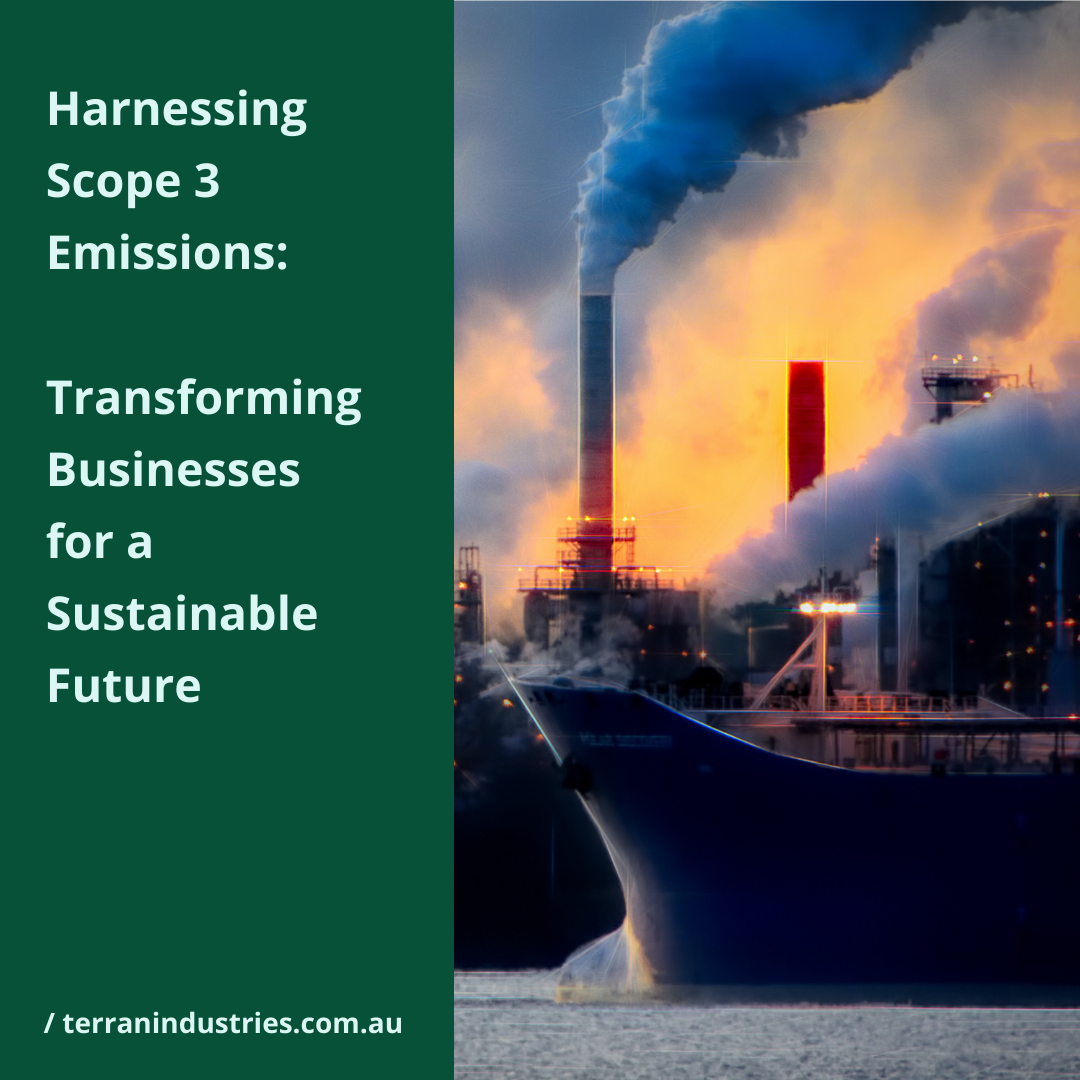BusinessSustainabilityESGSupply ChainInnovationHarnessing Scope 3 Emissions: Igniting Transformation

In an era where environmental concerns are at the forefront of public consciousness, businesses must not only strive to reduce their own carbon footprint but also take responsibility for their entire value chain.
Scope 3 emissions, which encompass indirect emissions from a company's supply chain and the use of its products, have emerged as a crucial aspect of sustainability.
While measuring, managing, and mitigating Scope 3 emissions may appear daunting, it presents a remarkable opportunity for businesses to drive positive change, enhance their reputation, and secure a resilient future.
Understanding Scope 3 Emissions:
Before diving into the importance of managing Scope 3 emissions, let's clarify what they are.
Scope 1 emissions refer to direct emissions produced by a company.
Scope 2 emissions account for indirect emissions from purchased electricity.
Scope 3 emissions are more complex, incorporating all other indirect emissions, such as those from suppliers, transportation, customers, and end-of-life treatment of products.
Recognising and addressing these emissions is crucial for companies committed to achieving comprehensive sustainability.
Enhancing Reputation and Attracting Stakeholders:
Proactively addressing Scope 3 emissions demonstrates a genuine commitment to sustainability and environmental stewardship. In today's socially conscious world, customers, investors, and other stakeholders prioritise companies that actively reduce their environmental impact.
By measuring, managing, and mitigating Scope 3 emissions, businesses signal their dedication to mitigating climate change and become more attractive to environmentally conscious stakeholders, thereby bolstering their reputation.
Identifying Efficiency and Cost-Saving Opportunities:
Taking a holistic approach to emissions can uncover inefficiencies throughout the value chain.
Measuring Scope 3 emissions allows businesses to identify areas where significant carbon reductions can be achieved, leading to cost savings.
By optimising transportation, supply chains, and energy consumption, companies can not only reduce their environmental impact but also enhance their operational efficiency and drive down costs. It's a win-win scenario where sustainability and profitability go hand in hand.
Collaborating for Collective Impact:
Tackling Scope 3 emissions requires collaboration among businesses, suppliers, and customers. Engaging with suppliers to improve their sustainability practices creates a domino effect throughout the value chain.
Encouraging customers to make environmentally responsible choices contributes to a culture of sustainability.
By fostering these collaborative partnerships, companies can have a far-reaching impact, creating a network of sustainability champions committed to reducing Scope 3 emissions together.
Embracing Innovation and Differentiation:
Addressing Scope 3 emissions opens doors to innovation and differentiation. Companies that actively seek sustainable solutions and adapt their business models to minimise environmental impact gain a competitive edge.
Consumers increasingly favor products and services with reduced carbon footprints, and businesses that embrace sustainability can capture new markets and expand their customer base.
The drive to mitigate Scope 3 emissions fosters creativity and stimulates the development of eco-friendly technologies and practices.
Conclusion:
Measuring, managing, and mitigating Scope 3 emissions may initially appear daunting, but it is a journey worth undertaking.
By embracing this challenge, businesses can transform themselves for the better, achieving long-term sustainability, enhancing their reputation, and capturing new opportunities.
In this era of heightened environmental awareness, companies that proactively address their Scope 3 emissions will not only ensure their survival but also play an integral role in building a more sustainable future.
Seize this opportunity today, and be a catalyst for change that creates a positive impact on our planet and society as a whole.

Evannah Jayne
Founder & CEO
A passion for sustainability and a desire to change the world, Evannah seeks to raise awareness of the important issues surrounding our planet today.
